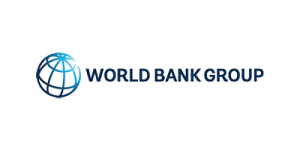New dawn for global value chain industry clusters to benefit the Philippines
The World Bank (WB) is hopeful that the Philippines can take advantage of the new dawn for global value chain (GVC) industry clusters by repositioning itself and enhancing its participation in the global context of reconfiguration.
Achieving this according to the WB requires no less than concerted effort from the government and private sectors and other key players by executing a plan that can guide investments from both domestic and foreign investors.
This was the statement of WB Country Director for Brunei, Malaysia, Philippines, and Thailand Ndiame Diop as he opened the bank’s recent release of its report “A New Dawn for Global Value Chain Participation in the Philippines” as it eyes increasing the country’s GVC participation in a post–COVID-19 world.

“For the Philippines, this is an opening to embark on industrial transformation, reconfigure our exports into industry clusters and strengthen GVC participation; and make the Philippines a more attractive investment destination. We in the new administration are committed to steering the country back to its high-growth path and keeping the momentum toward an inclusive and resilient society,” Department of Trade and Industry (DTI) Secretary Alfredo Pascual said in his keynote message.
Secretary Pascual emphasised that the country is already having signs of an economic recovery as its Gross Domestic Product (GDP) grew by 7.4 percent in the second quarter of this year which marked the fifth consecutive quarterly growth since the start of 2021.
“Challenges remain. Inflation stood at 6.9 percent this September and increasing costs and supply chain disruptions slowed the country’s economic momentum. Despite these challenges, the government remains focused on fully reopening the economy and its goals to reduce costs, stabilise prices and ensure health, food, and energy security,” he pointed out.
Pascual said that implementing an inclusive, sustainable, and resilient industrial policy is imperative for building a more competitive economy, and through science, technology, and innovation (STI) and essential digital technologies, industries will be better positioned to face competition in both domestic and export markets and pave the way for industrial transformation.
Four industry clusters are to drive the country’s growth.
They are: (1) the Industrial, Manufacturing, and Transport (IMT) cluster; (2) Technology, Media, and Telecommunication (TMT) cluster; and (3) Health and Life Science (HLS) cluster. And (4) Modern Basic Needs and Resilient Economy cluster, fostering economic resilience and long-term sustainable and inclusive growth.
Supporting the country’s enhanced participation in reconfigured GVCs is a long-term pursuit that entails addressing structural, systemic, and sector-specific constraints to growth.
During the event, Souleymane Coulibaly, WB Program Leader for Equitable Growth, Finance, and Institutions and the author of the New Dawn report, presented the highlights of the GVC launching.
He said that within the next six months ”the Philippines will have to address constraints to FDI attractiveness and facilitate trade through full implementation of key recent economic bills adopted. Within the next three years, the country has to promote investment and competition in logistics and connectivity services along with the development of an innovation ecosystem while advancing the digitalisation agenda to boost manufacturing.
In attendance were officials and representatives from the government like DTI-BOI and DOF-FIRB along with corporate officers representing the manufacturing sector, especially automotive; the technology sector, with IT-BPO in particular, as well as the Health and Life Science sector.



